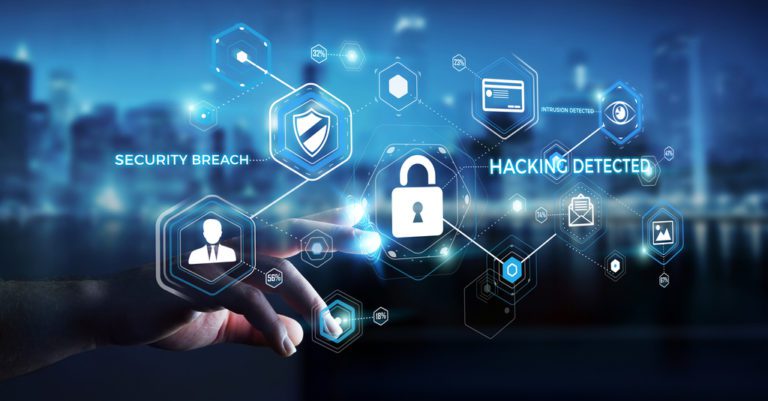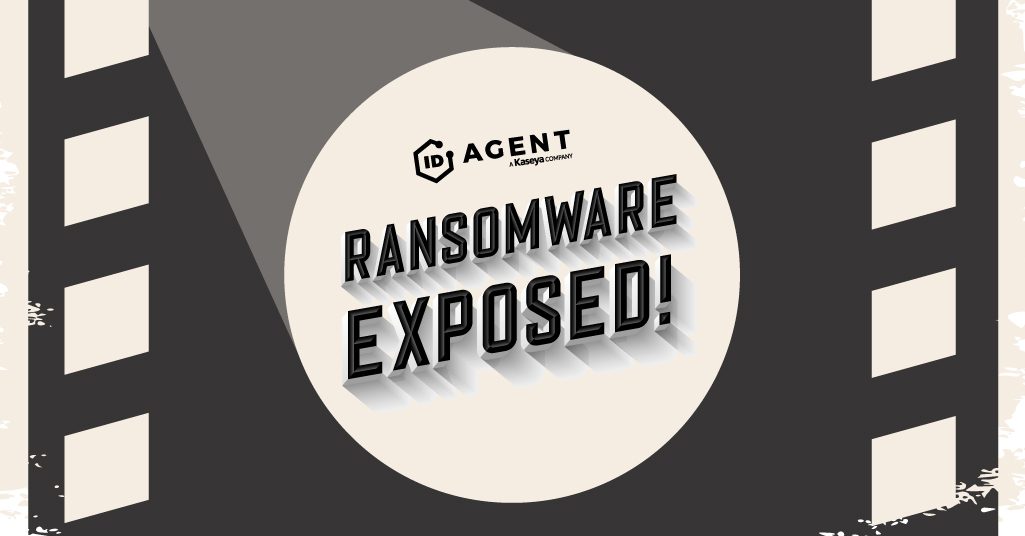What is Cyber Resilience? Should You Worry About It?

What is Cyber Resilience and is it Important for Your Business?
Cyber resilience is a term that’s gaining popularity in cybersecurity circles these days as the industry evolves to take on new threats. Just like any other buzzword, you’re probably skeptical about it and whether it’s something that is important for your business or just a passing fashion. What is cyber resilience, and is it really essential for businesses of any size?

Get the cheat codes to defeat cybercrime in our eBook The Security Awareness Champions Guide GET IT NOW>>
What Constitutes Cyber Resilience?
IBM names cyber resilience (called cyber resiliency in the UK) a crucial component of IT strategy for every modern business. A cyber resilient organization is able to stand in the face of rising threats from a variety of sources like supporting a remote workforce in volatile conditions, escalating credential compromise risk and cloud data security failures. In a cyber resilient company, business operations don’t grind to a halt in the event of a cyberattack. Instead, a cyber resilient organization can weather the storm to continue operating, respond to emergencies and quickly mitigate damage in the event of a cyberattack. Companies that are cyber resilient can increase customer confidence easily to position themselves as a secure, trustworthy partner and a model for data protection that customers can trust.
Cyber Resilience Isn’t Just About Solutions
Technical defensive tools alone aren’t enough to protect a business anymore. That’s why embracing cyber resilience as a holistic prospect is crucial for companies to gain real protection from cybercrime. In the IBM/Ponemon Cyber Resilient Cyber Resilient Organizations report, researchers detailed the importance of making sure that companies are combining innovation, strong security solutions and people-based defenses into a powerful system that provides optimum flexibility of response during a cyberattack or other data security incident.
Cyber resilience is a new way of looking at cybersecurity. In today’s rapidly shifting threat landscape, companies can’t just rely on tools and solutions alone to form their entire defense. Having a strong, experienced cybersecurity team is crucial. As is making sure that every employee feels like they’re an important part of that team whether it’s reflected in their job title or not. The rise of nation-state hacking is a good example of a constantly evolving threat that requires an agile defensive strategy. Cyber resilient organizations spend time developing security awareness training initiatives and conducting regular training programs at least 11 times a year for maximum efficacy.

Are you ready to fight back against cybercrime? See where 2021’s threats are coming from and what’s next. DOWNLOAD THE REPORT>>
Automation and AI Are Cyber Resilience Essentials
Detection speed is a critical factor in enhancing cyber resilience, especially when a security team is finding and fixing a breach. In the IBM/Ponemon Institute “Cost of a Data Breach 2020” survey, the benefits of always-on AI technology in preventing and remediating breaches faster were indisputable.
With fully deployed security automation, companies averaged 175 days to identify a breach and 59 days to contain it, for a total incident resolution time of 234 days.
Without security automation, companies averaged 228 days to identify a breach and 80 days to contain it, for a total incident resolution time of 308 days.
AI and security automation enabled organizations to respond to breaches nearly 30 percent faster than companies without security automation.
AI reduces the mean response time to a breach by 79 percent.

Protection from cybercrime danger is easy when you deploy your secret weapon: security-savvy employees! WATCH WEBINAR>>
People + Solutions = Success
Cyberattacks are more complex and dangerous than ever before. That’s why every company needs to be able to quickly pivot to meet new cybersecurity challenges, and that means placing a premium on flexibility as part of your cybersecurity strategy. The biggest asset that your business has to enable flexibility and quick thinking when faced with unexpected obstacles is your people, and making sure everyone is in the loop matters.
By maximizing your use of your available defensive assets, not only do you get more value for your money, you can more easily see where you may have unexpected gaps in security that you may not have otherwise noticed until it was too late. Just over 75% of IT executives in a cyber resilience survey by IBM survey said that adding tools that used automation and AI maximized the efficiency of security staff. You also develop a stronger overall security culture when everyone is thinking about how their actions can impact cybersecurity, leading to fewer errors that open the door to disaster.
Taking the pressure off of IT teams is essential for building cyber resilience, making adding automation and AI a no-brainer. Overtaxed IT teams are less effective, as illustrated in a late 2020 study, and most IT teams are significantly overburdened. Almost half of the respondents reported personally investigating 10 to 20 alerts each day, a 12% increase in 2020. Another 25% of respondents said they investigate 21 to 40 alerts each day, up from 14% the year prior, and 66% of survey takers reported seeing an increase in alerts since the pandemic took hold in 2020.
People-Focused Practices & Solutions That Enhance Cyber Resilience
By building cyber resilience, organizations can ensure that they’re agile and ready to act fast, deploying smart tools that maximize their defensive resources in case of trouble.
Security Awareness Training
Studies show that 1 in 3 employees are likely to click the links in phishing emails, and 1 in 8 employees are likely to share information requested in a phishing email.
Security Automation
IBM estimates that 70% of the most cyber-resilient organizations have deployed automated security.
AI
42% of companies in a cyber resilience survey cited security automation as a major factor in their success at improving their cybersecurity posture.
Strong Cybersecurity Culture
A strong culture helps employees resist social engineering which powers 98% of cyberattacks.
Zero Trust Policies
Adopting a zero trust framework saves companies from unexpected surprises from credential compromise and phishing.
Single Sign-On LaunchPads
Make it easy to isolate a suspicious login and segment architecture with one launchpad for every application a worker uses every day.
Multifactor Authentication
Just adding this one tool will prevent 99% of password-based cybercrime.
Security Awareness Training Increases Cyber Resilience
When the whole staff is working together and your solutions are making the most of that, your organization is safer. No matter what size your business is, it’s just not feasible anymore to have cybersecurity only be the concern of a small portion of your staff when one wrong click from any employee can lead to disaster. That’s why one important facet of building your company’s cyber resilience to ensure that everyone is ready to defend against today’s biggest cybersecurity threat: phishing.
Phishing is still experiencing triple-digit growth in 2021 – up almost 300% over 2020’s record-breaking numbers in May and June respectively – and companies in every sector are getting hammered with attacks. An astonishing 80% of IT professionals in a recent survey said that their organizations have faced an increase in the number of phishing attacks that they’re combatting in 2021. Unfortunately, more phishing attempts has translated into more phishing attack disasters for many companies. An estimated 74% of respondents in the same survey said that their companies had been successfully phished in the last year.
That’s one reason why the importance of security awareness training as a defensive tool cannot be overstated, especially when it comes to preventing sophisticated threats using social engineering from working on staffers. Building a strong security culture is a crucial component of cyber resilience that pays short- and long-term dividends. Companies that conduct regular security awareness training have up to 70% fewer cybersecurity incidents. BullPhish ID includes more than 80 plug-and-play phishing simulation campaign kits, security awareness modules for dozens of topics, and new content added every month to ensure that your staff is up to date on the latest threats.

See how ransomware really works, who gets paid & what’s next in our tell-all Ransomware Exposed! DOWNLOAD IT>>
Innovation Works Both Ways
Creating a healthy cybersecurity culture is essential for defending businesses from the consequences of cybercriminal social engineering. By making cybersecurity a priority and training everyone to recognize threats, you’re laying a strong foundation to do that. If just one employee spots and stops a phishing email because they’re invested in maintaining a strong defense, that can save a company millions of dollars as well as uncountable headaches in recovering from a cyberattack.
Cybersecurity experts are innovating all the time, but cybercriminals are innovating too – and they’re just as motivated to damage your business as you are to defend it. Increase your organization’s cyber resilience to increase your chances of successfully avoiding a damaging cyberattack. Contact ID Agent today to see how our solutions combined with your people power can boost your organization’s cyber resilience.

Our Partners typically realize ROI in 30 days or less. Contact us today to learn why 3,850 MSPs in 30+ countries choose to Partner with ID Agent!
Check out an on-demand video demo of BullPhish ID or Dark Web ID WATCH NOW>>
See Graphus in action in an on-demand video demo WATCH NOW>>
Book your demo of Dark Web ID, BullPhish ID, RocketCyber or Graphus now!